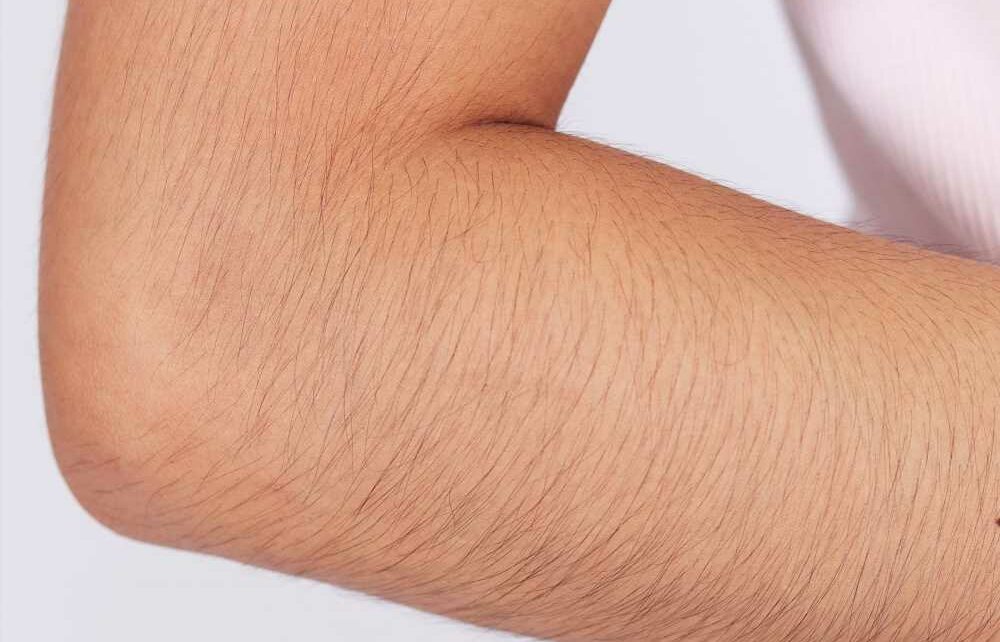EXPERTS have shared the most common myths about shaving body hair – and how to tackle it if you feel insecure.
Although body hair is totally normal, a recent study found that a staggering two thirds of women felt self-conscious about having hairy arms and armpits, especially when it's darker.


What's more, Berkshire Live reported, women also admitted feeling obliged to conceal their hair with long-sleeve garments, even during the warmer weather.
The beauty industry is full of products to tackle this – from waxing to forking out for pricey laser procedures, people can find many ways to get rid of arm hair.
Another popular method is shaving – however, here it is important to know what's fact and what's fiction.
So does shaving really make your hair grow back thicker and darker?
read more on beauty

Beauty fan shares two anti-ageing tips that make her glow, including a 57p drink

Skincare pro shares product you need to reverse wrinkles & it’s not expensive
Here, we take a look at some of the most common myths surrounding everything to do with razors.
Pitch black hair
According to the expert team at Gillette Venus, the thickness of your body hair has nothing to do with shaving – it's your genetics and hormones.
A razor blade cuts away hairs at the skin’s surface, which is what can make the cut hairs appear thicker and darker once they start growing back.
Shaving on a daily basis is bad for your skin
When it comes to shaving, it's how you do it that matters, not how often, the experts insisted,
Most read in Fabulous
 MYSTIC MEG
MYSTIC MEG
If you are single, midweek romance can start with a meeting at a movie
 ROYAL WELCOME
ROYAL WELCOME
Harry seen chatting to Hollyoaks star who played stripper in a racy spin-off
 ROYAL REUNION
ROYAL REUNION
‘Awkward’ Harry & Meghan share hints about their relationship as pair reunite
 GUTEN MEGHAN
GUTEN MEGHAN
Meghan reveals why she was late to Invictus Games as she reunites with Harry
Depending on your personal preferences – or time – you can shave every day, as long as you do it correctly to avoid any irritation on your skin.
Your skin will feel dry and flaky
Contrary to a popular myth, the pros at Gillette Venus claimed that a sharp razor blade can also shave off any dry and flaky skin cells.
When jumping out of the shower after your shaving routine, make sure to also apply a moisturising lotion or body oil to keep the skin hydrated and healthy.
Shaving during winter
Some choose to ditch shaving when winter approaches – and this is a personal preference.
However, this being said, as shaving also removes layers of dead skin, this can reduce friction from body hairs rubbing against your clothing.
This, in turn, can help prevent chafing and agitating dry skin that's a result of the harsher weather conditions and low temperatures.
Shaving over the same area multiple times will give you a smoother result
Whilst your skin may indeed feel softer and smoother, shaving over the same area over and over again could, in fact, cause unpleasant irritation.
If you feel like the first pass of a razor hasn't really given you the results you're after, experts advised to reapplying the shaving gel and then re-shave – gently.
However, if this doesn't help, it might be time to replace the existing razor or razor blade with a new one.
TikTok beauty guru, Kaia Naturals, also swears by shaving to tackle hairy arms, urging people to not ''listen to all those myths''.
According to the whizz, there are a few steps to keep in mind when shaving your arms – and here exfoliation beforehand plays a huge role.
Step two, she said in her video, is using a hot towel to open the pores, which is followed by mixing some vegetable glycerine with your favourite shaving foam.
READ MORE SUN STORIES

I breastfeed my HUSBAND – he’s healthier & we don’t care what haters say

Love Island star Laura Anderson opens up about ‘horrendous’ birth
According to experts, this affordable ingredient, which can be ordered on Amazon, keeps your skin barrier strong and hydrated.
The final tip, Kaia told her 587k fans on the platform, was using a single blade razor and shaving in the direction of your hair.
Source: Read Full Article
